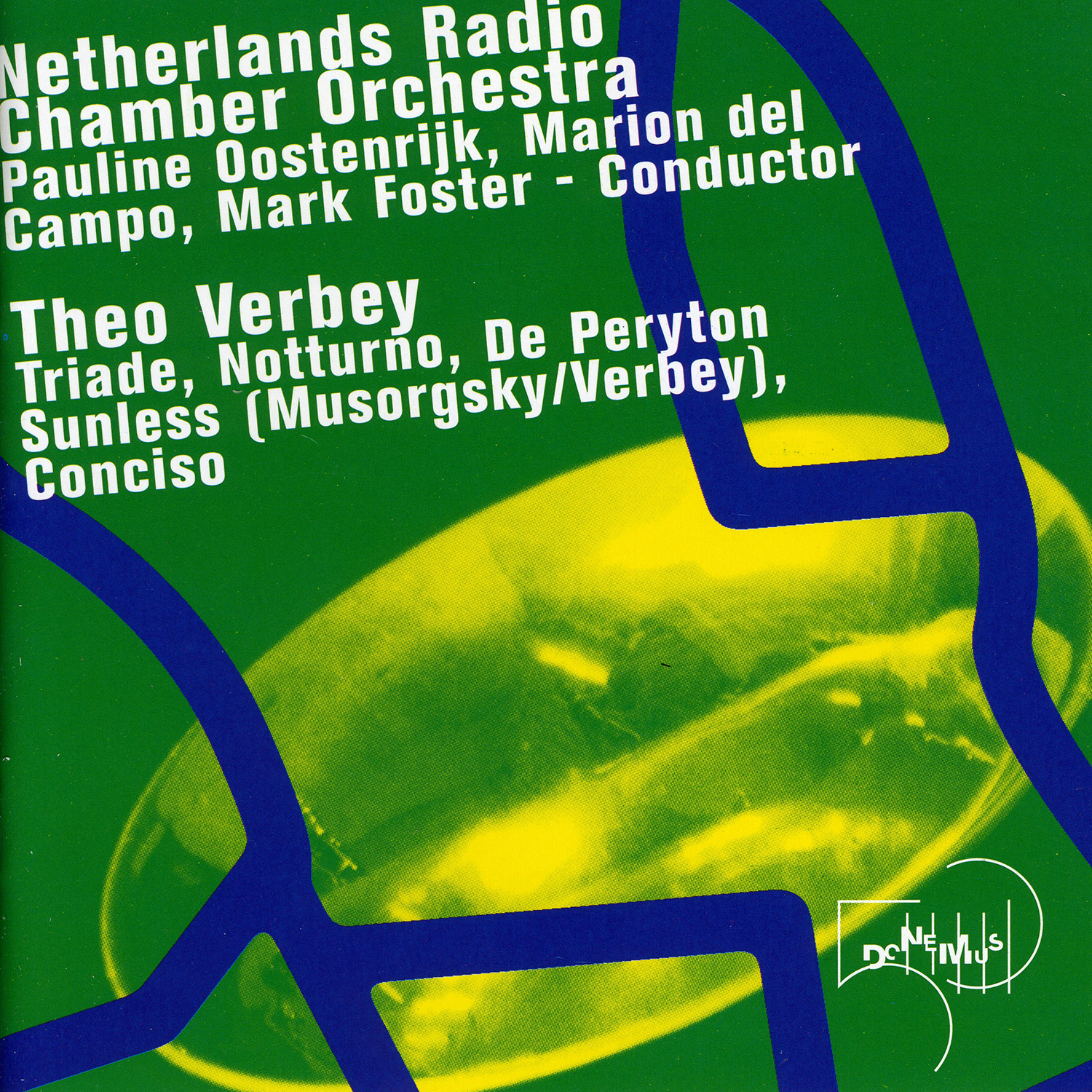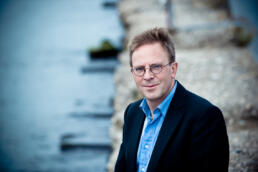Details
Duration:
20'
Instrumentation:
2.2.2.2 - 2.0.0.0 - perc, hp, str(6.6.4.4.2)
Commissioned by:
Performing Arts Fund NL
Dedicated to:
Nieuw Sinfonietta Amsterdam
Find on CD:
In Theo's Own Words
“I try to compose a kind of music that is influenced almost to a point of saturation: not by a mere fifty years of tradition, but by hundreds of years. Everyone knows that 1914, the moment that the musical world exploded, is more or less the most significant moment of this century. But the further away we are from that moment, the more space we find on the other side of the looking-glass.”
– Theo Verbey
Triade also has a strong connection with the musical tradition in general and with Mozart’s Symphony No.38, K504 (the Prague) in particular. The structural framework, the length, proportions and the technical ideas in this symphony form the basis on which Verbey builds his own composition. However, Verbey doesn’t use style imitations as Stravinsky did in Pulcinella, nor does he use the romantic form structures Schoenberg used is his later works, nor does he quote literally from the musical tradition as Luciano Berio did in his famous Sinfonia. By abstracting the technical ideas from the Mozart symphony (in this case, the development of a seemingly unimportant small motif to become the leading thematic role) Verbey explores the relationship between principal theme and accompaniment and draws the listener’s attention to this role-swapping element, using it for his own composition. Thus, in Triade Verbey does not imitate the melodies or harmonies of Mozart’s Prague Symphony, but constructs a composition based on its phrasing and structural proportions, as well as the relationships between harmonies and melodies. The work would be unthinkable if it were not for Mozart, but not for a moment does it sound like him. To quote Verbey again: “the idea of borrowing models from the past and using them in slightly different ways to produce something really new I find very special”. The piece shows that a healthy respect for tradition need not result in imitation, but is rather a catalyst for thought and reconsideration, for a critical but positive stance. As with the Mozart, Verbey’s Triade is written in D major. The title refers to the three movements of the composition and the tripartite form of these movements.
In Concert
22 Jan 2010
Brabant Philharmonic Orchestra, Leenders / van Raat / Verbey, Adams, Vleggaar
Eindhoven, Netherlands

